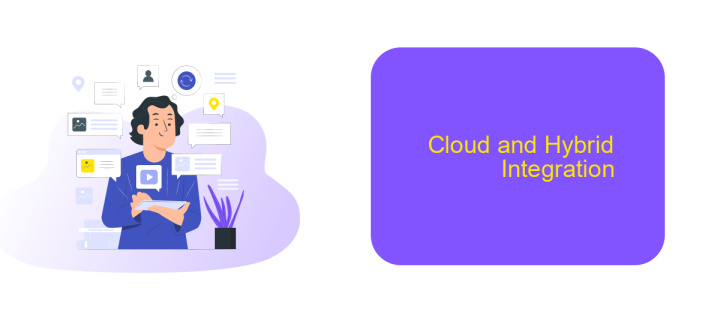MuleSoft Vs Tibco
In today's rapidly evolving digital landscape, businesses require robust integration solutions to streamline operations and enhance connectivity. MuleSoft and Tibco are two leading platforms offering comprehensive integration capabilities. This article delves into a detailed comparison of MuleSoft and Tibco, examining their features, strengths, and potential drawbacks to help organizations make informed decisions about which platform best suits their needs.
Introduction
In today's fast-paced digital landscape, businesses are increasingly dependent on integration platforms to streamline operations and enhance connectivity between various applications. Two prominent players in this domain are MuleSoft and TIBCO, each offering robust solutions for enterprise integration. Understanding the key features, strengths, and differences of these platforms is crucial for making an informed decision.
- MuleSoft: Known for its API-led connectivity and Anypoint Platform, which supports seamless integration across diverse systems.
- TIBCO: Renowned for its comprehensive suite of integration tools, including TIBCO Cloud Integration and BusinessWorks, facilitating complex integrations.
While both MuleSoft and TIBCO provide powerful integration capabilities, choosing the right platform depends on specific business needs and technical requirements. Additionally, services like ApiX-Drive can further simplify the integration process by offering user-friendly tools for connecting various applications without extensive coding. This comparison aims to shed light on the distinct features and advantages of MuleSoft and TIBCO, helping businesses navigate their integration journey effectively.
Integration Capabilities

MuleSoft offers a comprehensive suite of integration capabilities that cater to a wide range of business needs. Its Anypoint Platform allows for seamless integration across various systems, applications, and devices. With a strong emphasis on API-led connectivity, MuleSoft enables organizations to build and manage APIs effortlessly. The platform supports a variety of integration patterns, including real-time, batch, and event-driven integrations, making it versatile for different use cases. Additionally, MuleSoft's extensive library of connectors simplifies the process of connecting to popular enterprise applications and services.
On the other hand, TIBCO provides robust integration solutions through its TIBCO Cloud Integration platform. It offers a low-code environment, making it accessible for users with varying technical expertise. TIBCO excels in data integration, enabling organizations to integrate data from diverse sources into a unified view. The platform supports real-time analytics and event processing, which are crucial for modern business operations. Moreover, TIBCO's integration capabilities are enhanced by its comprehensive set of pre-built connectors, facilitating quick and efficient integrations. For businesses seeking additional automation, services like ApiX-Drive can complement these platforms by offering easy-to-use integration and automation tools.
Data Processing and Transformation

Data processing and transformation are critical components in any integration platform, and both MuleSoft and Tibco offer robust solutions in this area. MuleSoft provides a wide range of tools for data mapping, transformation, and enrichment, making it easier to integrate data from various sources. Its Anypoint Platform includes DataWeave, a powerful data transformation language that allows developers to perform complex transformations with minimal effort.
- MuleSoft's DataWeave offers advanced data transformation capabilities, supporting various data formats such as JSON, XML, and CSV.
- Tibco's BusinessWorks provides a graphical interface for designing data transformation workflows, which simplifies the process for non-technical users.
- Both platforms support real-time data processing, ensuring that data is transformed and delivered with minimal latency.
In addition to these capabilities, services like ApiX-Drive can further enhance data processing and transformation by offering seamless integration with multiple applications and automating data flows. This can be particularly useful for businesses looking to streamline their integration processes without extensive coding. Overall, both MuleSoft and Tibco provide comprehensive solutions, but the choice between them may depend on specific business needs and technical requirements.
Cloud and Hybrid Integration

When it comes to cloud and hybrid integration, both MuleSoft and TIBCO offer robust solutions tailored to meet the needs of modern enterprises. MuleSoft's Anypoint Platform excels in providing a unified solution for API management, design, and deployment, making it a strong contender for businesses looking to streamline their cloud and on-premises applications.
On the other hand, TIBCO's Cloud Integration platform offers a comprehensive suite of tools for real-time data integration and analytics, making it ideal for organizations that require seamless data flow across multiple environments. TIBCO also supports a wide range of connectors, enabling easy integration with various third-party applications.
- MuleSoft Anypoint Platform: Unified API management and deployment.
- TIBCO Cloud Integration: Real-time data integration and analytics.
- ApiX-Drive: Simplified integration setup with various services.
For businesses looking to simplify the integration process, ApiX-Drive can serve as an excellent complementary tool. It allows for quick and easy setup of integrations between different platforms, reducing the complexity often associated with cloud and hybrid environments. Whether you choose MuleSoft, TIBCO, or a combination of both, ApiX-Drive can help streamline your integration efforts.
Pricing and Support
When it comes to pricing, MuleSoft offers a subscription-based model with various plans tailored to different business needs. The cost can vary significantly depending on the number of users, the complexity of integrations, and the level of support required. Tibco, on the other hand, also provides a flexible pricing structure but tends to be more enterprise-focused, often requiring a larger investment upfront. Both platforms offer free trials, allowing businesses to evaluate their features before making a commitment.
In terms of support, MuleSoft provides comprehensive customer service, including 24/7 support for premium plans, extensive documentation, and an active community forum. Tibco similarly offers robust support options, including dedicated account managers and specialized training programs. For businesses looking to simplify and automate their integration processes, services like ApiX-Drive can be invaluable. ApiX-Drive offers an easy-to-use interface and a wide range of pre-built connectors, making it easier to integrate various applications without extensive technical expertise. This can significantly reduce the time and cost associated with setting up and maintaining integrations.


FAQ
What are the primary differences between MuleSoft and Tibco?
Which platform is more suitable for cloud-based integrations?
How do MuleSoft and Tibco handle API management?
What are the licensing and cost structures for MuleSoft and Tibco?
Are there services available to help implement and automate integrations for these platforms?
Time is the most valuable resource in today's business realities. By eliminating the routine from work processes, you will get more opportunities to implement the most daring plans and ideas. Choose – you can continue to waste time, money and nerves on inefficient solutions, or you can use ApiX-Drive, automating work processes and achieving results with minimal investment of money, effort and human resources.

